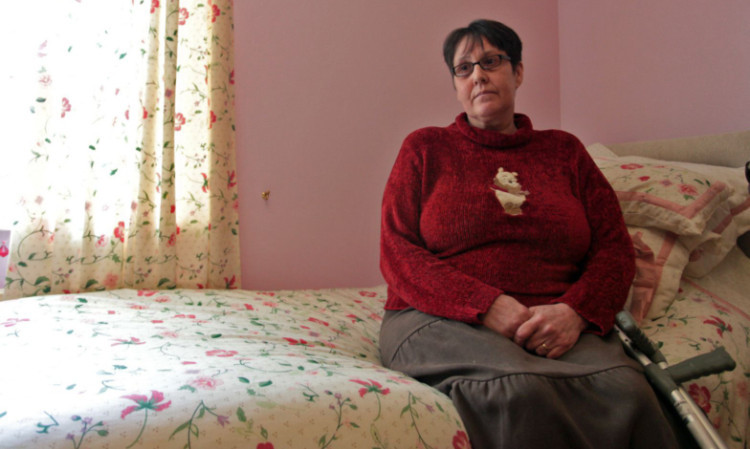
Councils flooded with requests for help.
Tens of thousands of desperate families are begging councils for emergency handouts.
A Sunday Post investigation has revealed town halls are being flooded by requests from social housing tenants for money to cover their rent.
Labour says the huge number of applications for discretionary housing payments (DHP) are a direct result of the bedroom tax. And they say councils are running out of resources to meet the demand.
In the first six months since the bedroom tax was introduced on April 1, more than 44,100 requests have been made for DHP from 29 local councils alone. The figures, released under Freedom of Information laws, show thousands of requests have been unsuccessful.
Earlier this year, it was revealed that, in 51 councils across Britain, more than 25,000 people applied for DHP in April compared with 5,700 in the same month in 2012 a rise of well over 300%.
Emma Reynolds MP, Labour’s Shadow Housing Minister, said: “Councils are struggling to support people hit by the bedroom tax, particularly disabled people.
“More than half of those hit are disabled, and nine out of 10 disabled people who don’t receive discretionary housing benefit are cutting back on food or having to choose between heating and eating.”
The tax, known officially as the Under-Occupancy Penalty, affects 660,000 homes in Britain. Tenants lose £14 a week in housing benefit for having one extra room and £25 for two rooms.
The UK Government increased housing aid available to councils from £60 million last year to £155 million this year. But local authorities will still be left with a huge shortfall.
Among the hardest hit is Glasgow where more than 13,200 families have applied for DHP this year.
Councillor Matt Kerr, the city’s spokesman on welfare reform, said: “The tax is an immoral shambles that is comprehensively failing to deliver on what was promised. Topping up the DHP is not a long term solution to a policy that’s causing massive social harm.”
In Edinburgh, 3,247 families have applied for DHP, with 1,647 successful.
Cammy Day, Edinburgh City Council’s housing leader, said: “The extra money from the Scottish Government has been really helpful, but we are still about £500,000 short.”
He described the bedroom tax as “flawed” as the city doesn’t have enough one-bedroom homes for under-occupiers to move into.
South of the border, councils in Newcastle, Gateshead and South Tyneside have been inundated with requests from desperate residents. Newcastle alone had received 2,132.
Jayne Henderson-Muse of Newcastle City Council, said: “Large numbers of people are applying for DHP and numbers will continue to rise as benefit changes have an impact across the city.
“We will continue to manage the funds we have, but we cannot guarantee everyone will get money they need.”
Carer Dianne Layton-Jennings is one of more than a thousand people across the country who have been refused DHP.
She has looked after disabled husband, Stephen, for 16 years and applied to her local council in Gateshead, after being told she must pay the bedroom tax. Dianne and Stephen, who has suffered two strokes, have separate bedrooms in their specially-adapted home. They would have to find the money to pay for the £14-a-week cut in their rent.
Dianne turned to the Government funds for help.
But Gateshead Council refused her application for DHP because there is simply not enough money to go around.
“At night, we watch the TV with no lights on. The gas fire hasn’t been on since April and we have had to cut back on food,” said Dianne.
“We’re painted as feckless scroungers by this Government. I’m not a drug addict or an alcoholic. As a carer, I work harder than most people. It is disgraceful the way we, and thousands of others like us, are being treated.”

Enjoy the convenience of having The Sunday Post delivered as a digital ePaper straight to your smartphone, tablet or computer.
Subscribe for only £5.49 a month and enjoy all the benefits of the printed paper as a digital replica.
Subscribe